The bad news for Volkswagen just keeps on coming.
In the last week, the company has fired much of its upper management, eradicated all mention of its TDI diesels from its U.S. website, and admitted that 11 million diesel vehicles have software that enabled them to pass emission tests while emitting 10 to 35 times the permissible U.S. levels of nitrous oxides.
Yesterday the German transport ministry announced that Volkswagen had rigged emission tests on 2.8 million diesel vehicles in Germany alone. Switzerland temporarily banned the sale of VW diesels in the country.
DON'T MISS: VW Diesel Emissions Recall: What You Need To Know In 10 Questions
And there will likely be more news--much more--in the coming days and weeks. The scope and impact of the scandal is one that no automotive journalist could likely have imagined before the news eight days ago.
U.S. owners of Volkswagen TDI diesel cars are upset, angry, hurt, and betrayed. They're also fearful of what will happen to the resale value of their cars--and VW has said nothing about what will happen next.
Over all this, however, the question remains: Why did one of the three largest automakers in the world decide it had to cheat, so wantonly and blatantly, on emission standards that presumably all of its competitors met?
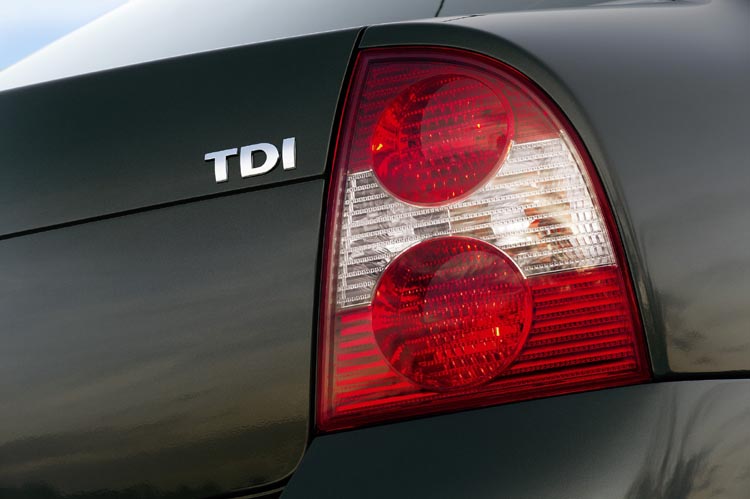
VW TDI badge
To be clear, the 482,000 diesel Volkswagens in question passed the emission tests mandated by the U.S. Environmental Protection Agency.
The deception was in a piece of software that detected whether the car was being emission-tested or operating in real-world use, presumably based on steering position, relative wheel motion, and other sensor data.
If it detected that the car was being tested, its engine-control software behaved in a way that complied with the emission limits--specifically those for nitrous oxides, or NOx, a major contributor to photochemical smog.
ALSO SEE: VW Emission Cheating Could Kill Diesel Passenger Cars In U.S., Even Globally
But then, if it detected the car was being driven by an actual driver on open roads, it behaved quite differently--and emitted 10 to 35 times the nitrous oxides permitted under longstanding emission rules in place since 2008.
Why would a huge global automaker like Volkswagen circumvent U.S. emission rules rather than comply with them?
The answer comes down to a combination of cost, fuel efficiency, and driving performance.
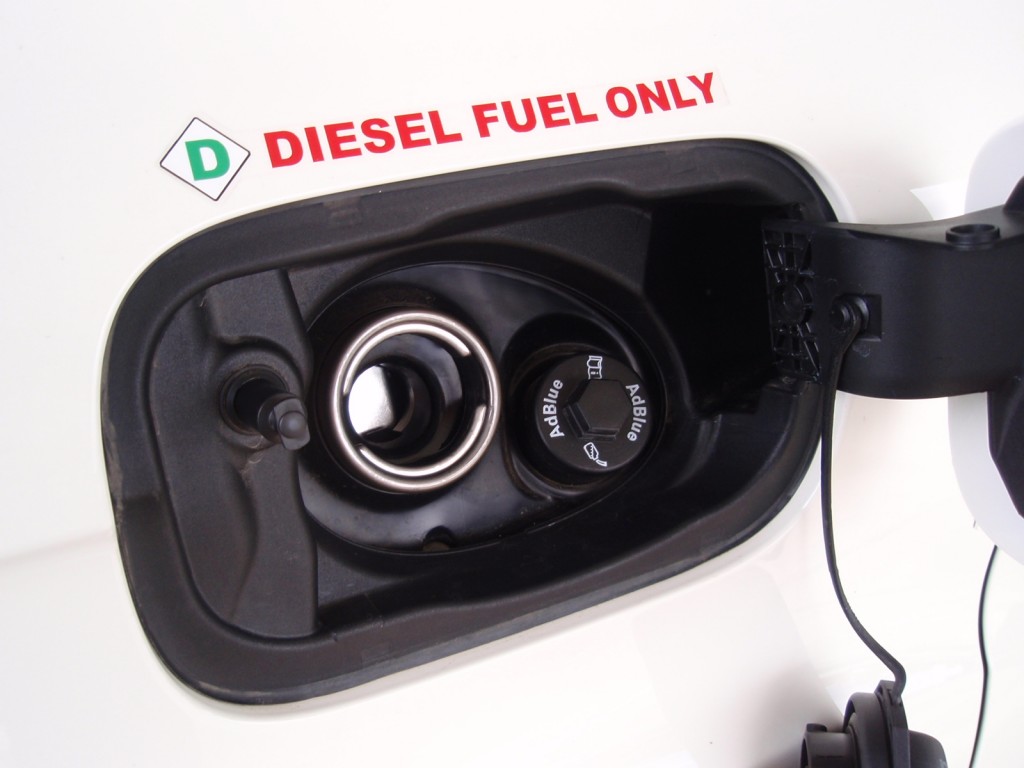
'Diesel fuel only' caution on Audi Q7 TDI
To understand these forces, it's important to understand the global auto market. Volkswagen AG is the only European maker among the three largest global automakers; the other two are General Motors (U.S.) and Toyota (Japan).
As such, VW is influenced by its home market. And in Europe, since the 1990s, diesel cars have made up roughly half of all passenger car sales. The numbers vary by country, but in the European Union, it's been at one of two for 10 years.
As Europe's best-selling automaker by far, Volkswagen has devoted an inordinate amount of its powertrain development effort to diesel engines.
MORE: VW, Audi TDI Diesel Cars Had 'Defeat Device' That Violated EPA Rules, 500K Cars Recalled:
The problem is that U.S. and European emission standards for diesel diverged sharply in 2008. The U.S. adopted much stricter rules (known as "Tier 2, Bin 5") on emissions of virtually every component of diesel exhaust.
Europe, on the other hand, stayed with the so-called Euro 5 standards. Its emission limits only moved up to roughly the U.S. level this year.
But while other makers--including Toyota, Honda, General Motors, and Ford--began to introduce gasoline hybrid-electric vehicles to boost their fuel efficiency, VW chose to stick with diesels.
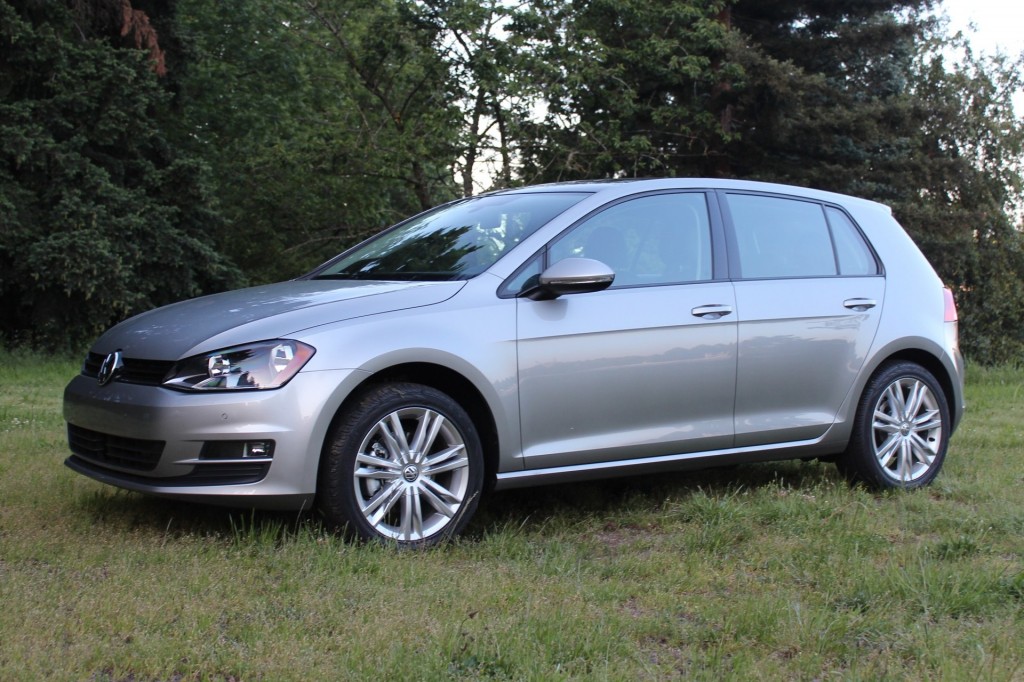
2015 Volkswagen Golf TDI SE
The depth of the company's commitment to diesel engines, even in a U.S. market that showed little natural appetite for them, can be illustrated by one anecdote.
"If U.S. car buyers were smarter and better informed," said a highly-placed Volkswagen powertrain executive to this reporter, "they'd buy our clean diesels instead of all this hybrid nonsense."
He went on to explain that diesels were naturally more cost-efficient than hybrids, because the latter required fitting two separate powertrains (gasoline and electric) and a very pricey battery pack into a car.

2012 Volkswagen Passat TDI Six-Month Road Test
Diesel strength actually a weakness
In retrospect, that statement reflected not Volkswagen's strength in diesel but its weakness in any other fuel-saving technology.
For years, the German industry essentially sneered at electrification of auto powertrains--until Tesla Motors proved with the 2012 Model S that electric drive could produce cars that were sexy, quiet, and stunningly fast.
Before that, the Germans would recite in unison that hybrids were slow, unpleasant to drive, and strange-looking, while electric cars could only be small, low-range urban vehicles. For real cars driven by real-world drivers, diesel was the way.
RELATED: How VW Can Atone For Diesel Deception: Electric-Car Advocate's Thoughts
Discussing hybrids with German engineers in that era, you could almost see the thought bubble: "Ugh, hybrids are for smelly hippies; real men drive diesels."
While BMW and Mercedes-Benz dabbled in hybrids in very low volumes starting in 2011, Volkswagen didn't introduce its first affordable hybrid-electric vehicle in the U.S. until 2013. (An extremely low-volume Touareg Hybrid SUV appeared in 2011.)
That Volkswagen Jetta Hybrid is essentially an orphan, hard to find at dealers and marketed very little if at all. By contrast, paeans to the efficiency and driving fun of VW's TDI diesel lineup prevail.

2014 Volkswagen Passat TDI
(You won't find any of those on the U.S. Volkswagen website, however. It's been scrubbed clean of any mention of so-called "clean diesel" vehicles, and only a single vehicle--the pricey and low-volume Touareg SUV--even lists a TDI diesel option. The company also deleted all its "clean diesel" marketing videos from YouTube.)
So why'd VW deliberately build cars that violate U.S. laws in real-world use?
First, Volkswagen had to rely on its diesels to meet U.S. fuel-efficiency standards--because it had nothing else.
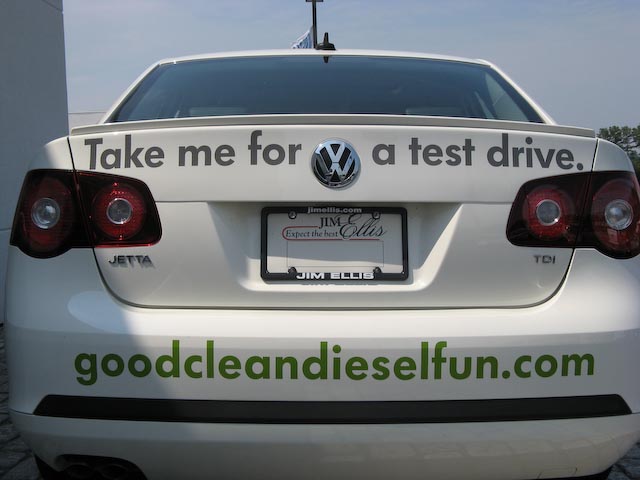
2009 Volkswagen Jetta TDI
As soon as Barack Obama won the presidency in 2008, it was clear that the corporate average fuel-economy standard would rise.
Indeed, the new president quickly directed the U.S. EPA (which regulates emissions), the National Highway Traffic Safety Administration (which regulates fuel economy), and the California Air Resources Board (which can set emission standards for the state) to resolve their differences and come up with a joint program for 2012-2017 emission rules.

2016 Ford F-150 Limited
The resulting rules set higher rates of increase for cars than for the light trucks that provide Detroit its profits. VW sells only passenger cars in the U.S. in any kind of volume, so it would face steeper CAFE hikes than competitors with full SUV and pickup truck lineups.
But with no major research into hybrids or electric cars, the company had to go with what it had: diesels.
Second, Volkswagen couldn't boost the cost of its diesel cars that much. As it is, the cost premium for a TDI diesel over a gasoline engine in the same VW ranges from $1,000 to $7,600.
But unlike the rest of the Germans--BMW and Mercedes-Benz specifically--Volkswagen is a mass-market brand, and its cars are much cheaper. Even VW Group's Audi luxury brand is more weighted to small and medium cars than the other two. Luxury buyers will pay higher premiums for technologies they want, whereas volume-car buyers are far more price-sensitive.

diesel and AdBlue fillers in Audi Q7 TDI
The technology that allows BMW, Jeep, Mercedes, and Ram vehicles to meet emission limits is called Selective Catalytic Reduction (SCR), or "urea injection." It injects liquid urea into diesel exhaust in an additional catalytic converter at specific points, converting NOx into nitrogen and carbon dioxide.
But it's expensive; it requires a urea tank, associated plumbing, an additional converter, and other components. Volkswagen hadn't engineered SCR for any of its volume compact cars, most acutely the high-volume Jetta sedan, as well as the Golf hatchback, the Beetle, and the Audi A3 compact luxury hatchback.
Not until 2014 and 2015, respectively, did a new diesel engine with SCR appear in the replacements for the A3 and the Golf. Granted, the Passat sedan developed specially for the U.S. was fitted with SCR from its 2012 launch--but it too grievously failed the real-world emission tests, perhaps because it was a 140-hp engine moving a large and heavy mid-size sedan.

Add AdBlue in Trunk
Third and last, VW diesels had been known for years as fun to drive.
They produced prodigious torque compared to gasoline engines of similar power, and combined with German-engineered suspension tuning and handling, they gave cars like the diesel Jetta the mantle of affordable sport sedans with high fuel economy as a bonus.
That was VW's marketing pitch for its high-efficiency volume cars in the U.S., and the company had to maintain it.
But passing the new and more stringent emission tests for 2009 likely called for throttling back both the cars' strong acceleration and their fuel economy.
(It's easier to use less fuel if you tune the diesel to emit more NOX, since keeping the NOx trap sufficiently hot to function properly burns more fuel that's not used for propelling the car.)
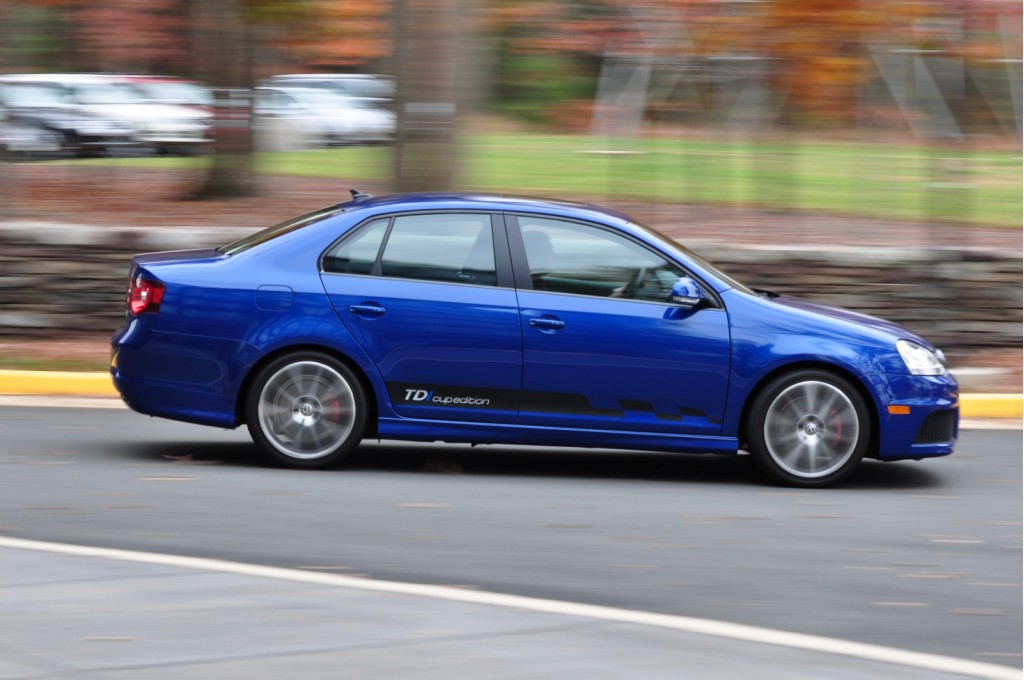
2010 Volkswagen Jetta TDI Cup Street Edition
So VW was caught between a rock and a hard place.
Complying with the regulations by fitting SCR to its volume cars, which would raise their price, reduce their performance, and lower their fuel economy would have been the right thing to do.
Or, building in software that let the cars pass U.S. emissions tests and then emit far more NOx than the permitted limits in real-world use would solve those problems.
That VW has apparently admitted to choosing the second course rather than the first has left the industry--not to mention both regulators and its customers--in a state of stunned disbelief.
And the ramifications of that choice will reverberate for years.
The ultimate effects of that decision will cost of tens of billions of dollars and wreak untold damage to VW's corporate reputation.
Not to mention to the environment.
_______________________________________________












